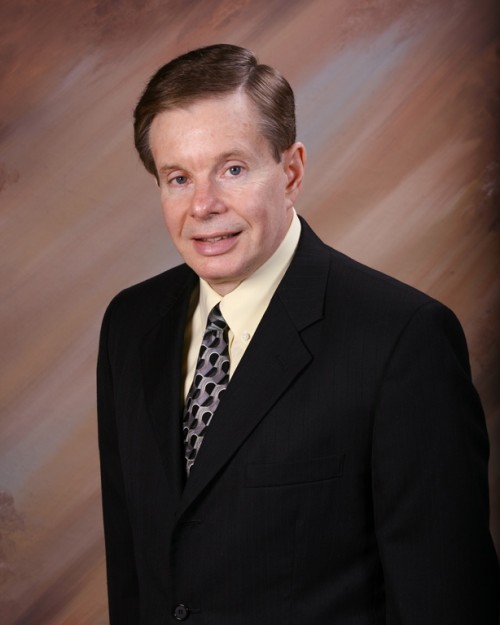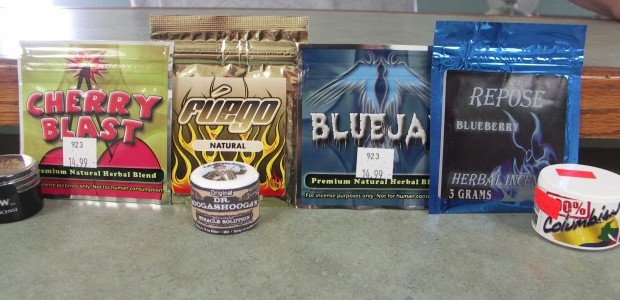
Budget in pace with revenue
October 30, 2012
State special session rally falls short on signatures
October 30, 2012Hailey Voisin appeared before the Terrebonne Parish Council. In a brave, clear voice she asked the panel of elected officials to stand strong against synthetic drugs packaged and sold as legitimate products. “I’m talking about my mom, because my mom is a user of synthetic drugs,” Voisin said at last Monday’s council meeting.
The 13-year-old Evergreen Junior High School eighth grader explained how for more than six years her mother has used products sold as bath salts to embrace a narcotic high.
Voisin was among a line of residents voicing support to a proposed ordinance that would take existing state and federal narcotic laws one step further.
Terrebonne Parish officials want to make illegal the sale of products sold in commercial packaging, but known among users to contain illicit components.
“I think it is great that [the parish council] brought this out to talk about it,” Voisin said. “A lot of people just keep to themselves and they should be outspoken about this problem.”
Product Presence
Identified as designer bath salts, these products are sold primarily in convenience stores and online. Names include “Fuego,” “Ivory Wave,” “MoJo Blue,” “Repose” and “Vanilla Sky.”
The combined chemicals of these bath salts have been outlawed by federal and state governments. However, because the items have displayed a consumer warning “not for human consumption,” they, like Epsom salts or other medicinal soaking solutions, may be openly displayed and sold in retail outlets.
The chemical composition of these bath salts contains a clinical presentation similar to mephedrone, a synthetic stimulant of the amphetamine class.
According to Terrebonne General Medical Center Emergency Department Director Nancy Yzaguirre, 87 people experiencing drug overdoses came into the hospital emergency room during the past year. Of those cases, she said three were confirmed as being related to synthetic drugs.
“A lot of cases are multiple drugs,” Yzaguirre said. “So, you can’t really tell if they are doing [synthetic drugs] in addition to [other narcotics]. There were three that specifically said they smoked the synthetic marijuana. There were probably about 10 other cases that were multiple drugs that may have included some of that.”
Yzaguirre said many users like the synthetic drugs because they are difficult to detect in screening tests at schools or places of employment.
Few clinical studies have been conducted regarding illicit use of mephedrone. Users reportedly have said the drug produces enhanced mental function, euphoria, decreased hostility, sexual stimulation and an increased enhanced appreciation for music.
Effects of taking synthetic drugs are similar to cocaine and amphetamines. The high can last up to 45 minutes depending if the product is swallowed, snorted or smoked.
According to medical professionals, consumption of bath salts can cause agitation, paranoia, hallucinations, chest pain and suicidal thoughts. “When we see them they are at the point that their families can’t manage them anymore,” Yzaguirre said.
“A lot of these cases you hear of about with people going around acting like zombies, and biting other people are related to these bath salts,” Councilman Greg Hood, who authored the proposed ordinance, said.
Consumer Convenience
Hood, a retired Houma Police Department captain, said bath salts are profitable products sold in otherwise standard businesses. “We have a store in this parish making $130,000 a month on the sale of this stuff,” he said. The councilman declined identifying the store by name.
“You walk in and say, ‘I need MoJo Blue,’” Hood said. “Give [the store clerks] $35 and they give you a little package and you’re out the door.”
The retired law enforcement officer said police can do nothing about the buying and selling of this narcotic, simply because of how it is packaged and marketed. Retailers decline to comment.
“If a 15-year-old kid walks into a convenience store and says, ’I want a six-pack of Bud,’ he can’t get it because he’s not 21,” Hood said. “If a 15-year-old kid walks into a grocery store and wants a pack of cigarettes, he can’t get it because he is not old enough. But he can walk into these convenience stores and get this stuff, smoke it and the next thing you know [he] is hallucinating.”
Ordinance Objective
The council withdrew a proposed ordinance – presented last Wednesday for public hearing – until the language is modified.
“We’re trying to get the best legislation we can put on the books so it doesn’t get overturned in the courts,” Councilman Danny Babin said. “That’s our main goal.”
The presented bill called on Sec. 1-06 of the Terrebonne Parish Home Rule Charter as providing local government the right, power and authority to pass ordinances necessary to promote public health and safety.
The ordinance noted difficulty in regulating synthetic drugs because they can easily be chemically altered and re-introduced under new labels.
The ordinance read, “Except as expressly authorized by state and federal law, it shall be unlawful for any enterprise to request, or maintain an occupational license within Terrebonne Parish where the enterprise sells or distributes in any manner the [prohibited] substances.”
Under the proposed law, any business supervisor, manager, employer, property or business owner who knowingly allows the distribution of synthetic drugs could be hit with misdemeanor charges.
When asked if this law would violate free enterprise, since the substances are packaged as having a described proper use, Hood said he understood the concern. He added that knowledgeable merchants “more concerned about public wellbeing than making easy money” would not carry the product among their inventories.
“Listen, I know people have a right to sell legitimate products, but don’t let them fool you,” Hood said. “The people who sell this stuff know how people really use it. Any respectable businessman would not want this in his store.”
Terrebonne Parish Sheriff Jerry Larpenter said the sale of bath salts and other synthetic drugs in retail outlets is a growing concern. He said part of the problem occurs when new laws are passed, because outlaws change chemical combinations and measurements to the product, making it openly sellable.
“It is hard enough to live life worrying about dying of natural causes or in automobile wrecks,” Larpenter said. “What is happening is a lot of people care more about making a dollar than about human beings they are killing by selling this stuff. I definitely am in favor of somebody selling poison to our children having their occupational licensed revoked … being out of business and going to jail.”
“Having an occupational license is not a Constitutional right,” Sea-Go Seafood owner Arthur Eschete said. Eschete told the council that retailers selling bath salts should be held accountable for any harm the product causes. “Part of being in business means serving the public,” he said. “These places are not serving the public.”
Public Proclamations
Sherrell Parfait-Dardar said as chief of the Grand Caillou-Dulac Band of Biloxi-Chitimacha-Choctaw Native Americans, she has seen first-hand the damage caused by easy access to synthetic drugs.
“My tribal members and I want to show our support … in wanting to pass local ordinances, and have those incorporated within Terrebonne Parish, that would prevent any business from operating within our parish if they choose to continue to poison the bodies and minds of our people,” she said. “By that I mean everyone in our parish. We must stand as brothers and sisters to protect ourselves from greedy business owners only looking to make a profit at the expense of our peoples’ physical and mental health.”
Councilman John Navy works as a guidance counselor in the Terrebonne Parish School District and confirmed bath salts and other synthetic drugs as being a genuine problem.
“This has been ongoing,” Navy said. “I can tell you right now, it will continue to be a problem if we do not address it … as a community … and attack it head-on. In fact, we’re too late and should have done something years ago.”
Sandra Duplantis is Voisin’s grandmother. She has been caring for the young teen and her 5-year-old sister while their mother is incarcerated.
“I need this off the market,” Duplantis said. “I need help with my daughter.”
Duplantis and Voisin also expressed interest in seeing more drug treatment centers for females. “If you go to drug court, you will see that women are 75 percent to 25 percent guys,” Duplantis said. My daughter is … 32 years old but I have been fighting her [drug use] for many years. It gets overwhelming, especially when you have grandchildren involved.”
Next Step
“This really, really disturbs me,” Councilman Pete Lambert said. “I know [the synthetic drug use] will go underground after [a law is accepted], but we’ve got to take it out of the stores. We can’t let them sell it legally in the stores.”
Hood admitted Terrebonne Parish must comply with state law and said he is working with legislators to make local controls possible.
“As of right now a law is being presented to the governor that allow parishes, towns and communities that have occupational licenses to be able to come up with their own ways of issuing, suspending, revoking and refusing to renew occupational licenses,” he said. “The only other [challenge is] getting other parishes to do this. We don’t want [users] to say, ‘We can’t buy it in Terrebonne, so let’s go to Lafourche.’”
Hood said if approved, his remodeled ordinance would have the same controls on retailers with occupational license as are in place with liquor licensing. “I promise you, I am not going to let this die,” he said. “The only people that are going to be against any of these ordinances are going to be either the users or the sellers.”
“Another thing,” Larpenter said, “is lot of people don’t realize it costs a lot out of our budget to have these drugs, because every time we make an undercover bust and arrests in these stores we have to send the drugs to a lab to get it analyzed, and that’s not cheap.
“Every time they change the ingredients in these bath salts and synthetic marijuana it costs the taxpayers money,” the sheriff added. “How about health care once [the users’] brains are fried? It is going to cause serious health problems and a cost lot of money down the road if we don’t do something about it.”
“We’re not taking ‘no action’ to not take … action,” Council Chairwoman Arlanda Williams said. “We have a correction to this [ordinance for] our next council meeting. So, it makes no sense to have two public hearings to iron out the wrinkles [when we can] get it done once-and-for-all.”
“I don’t have any problem with somebody running a legitimate business,” Larpenter said. “A lot of people have their heads in the sand and don’t want to see what is going on in the world. What causes these people to continue to want to use these drugs? Nobody knows. We need somebody to say, ‘Enough.’”
The parish council will present a revised ordinance to outlaw the sale of bath salts and other synthetic drugs through retail outlets during a public hearing on Nov. 14.
The Terrebonne Parish Sheriff’s Office says packaging and names given to synthetic drug bath salts are specific to the regions where they are sold. Like other consumer products, makers work to market appeal to local buyers. Terrebonne Parish may set a new standard by outlawing the retail sale of these products.

















